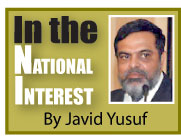Columns
Reflections on voter behaviour and the predicament of the left
View(s):Sri Lanka’s political landscape has undergone tremendous change over the years. The reasons are many ranging from the general deterioration of society to changes in electoral systems. However the incomprehensible behaviour of the voter too has also contributed to such change.
As a result the quality of governance has suffered considerably not only impacting adversely on the poorer sections of society but also harming the national image of the country in the eyes of the world.
Be that as it may two aspects of the political scenario in the post-independence era defy explanation.
One is the transformation of the Northern and Eastern provinces into an arena of violent conflict that not only wreaked havoc and misery in the lives of the people nationwide but also bled the country’s economy and drained its resources in a senseless civil war.
The second is the transformation of the Southern province from a socialist oriented political society to one that is currently dubbed by some as the homeland of hardline Sinhala nationalism.
Both these phenomena have not received adequate attention of researchers to determine possible reasons for such changes. As a result political analysts can only surmise the causes of such changes without the benefit of knowledge based data.
Post-independence it was the two main left parties the Lanka SamaSamaja Party (LSSP) and the Communist Party of Sri Lanka (CPSL) that publicly took a stand in support of justice to the minorities. It was in furtherance of such a policy that the left leaders advocated parity of status for the Sinhala and Tamil languages despite the more popular Sinhala Only policy that took root in the country in the mid-fifties.
Leftist leaders articulated their principled and bold but unpopular stands in Parliament in the following words: “Even if we are thrown into the political wilderness we will never give up our stand of parity of status for the Sinhala and Tamil languages.”
Speaking in Parliament in 1955, Dr.N.M. Perera the LSSP Leader warned: “We shall have a perpetual division of the country, we shall never get a united Ceylon, and we shall have a tremendous amount of bloodshed which will lead us nowhere, and, in the end, this country will either become a colony or a plaything of interested big powers.”
Dr. Colvin R. de Silva, participating in the Official Language (Sinhala only) Bill debate in Parliament in 1956, stated, “… Do we want an independent Ceylon or two bleeding halves of Ceylon which can be gobbled up by every ravaging imperialist monster that may happen to range the Indian Ocean? These are issues that in fact we have been discussing under the form and appearance of the language issue… One language, two nations.Two languages, one nation.”
The other segment of the left movement, the CPSL also took a similar stand as the LSSP on the language issue. In the debate on the Official Language Bill Dr. S. A. Wickremesinghe and Pieter Keuneman strongly argued for parity of status for the two languages.
What is interesting for the student of politics was why the Tamil people did not extend their support to the two left parties despite their principled stand on the language issue at the risk of losing out on Sinhala support in the south.
The Tamil electorate’s reaction was evident by the minimal support achieved by the LSSP and CPSL in Parliamentary Elections in the north.
The reason given by some for the lukewarm support received by the left parties in the north was that the two parties were deemed revolutionary and therefore associated with violence. The argument was that the Tamil people were a peaceful community that abhorred violence and therefore could not commit themselves to support a revolutionary party.
This argument was tested by the violent turn politics took in the north subsequently under the leadership of the LTTE albeit despite the opposition from within the Tamil community.
The left parties faced a somewhat similar situation in the South. Right upto the late seventies the electoral map of the southern coastal belt was always marked red with the left parties holding sway.
Pieter Keuneman was elected from Colombo Central, Dr. Colvin R. de Silva from Wellawatte-Galkissa, Merril Fernando (LSSP) from Moratuwa, Leslie Gunawardana (LSSP) from Panadura, CholomondleyGunawardene (LSSP) from Kalutara, Weerasinghe de Silva (LSSP) from Balapitiya, L.C. de Silva (LSSP) from Ambalangoda, M. G. Mendis (CPSL) from Ratgama, B.Y. Tudawe (CPSL) from Matara, AelianNanayakkara (CPSL) from Kamburupitiya, Dr. S. A. Wickremesinghe (CPSL) from Akuressa together with a few others held sway along the southern coastal belt despite their stand on the language issue.
The political tsunami that hit the country and pushed the country along a right wing trajectory saw all these strongholds crumble and the left movement was virtually decimated.
What is difficult to fathom however is how such electorates which stood by the left despite its policy on the minorities subsequently transformed itself into (supposedly) strongholds of Sinhala nationalism.
Today the JanathaVimukthi Peramuna (JVP), exactly like its predecessors of the traditional left are admired for their principled and incorruptible role in politics even among their opponents.
However just as in the case of their political predecessors the JVP does not seem to be able to cash in on the public admiration by translating it into mass appeal.
The qualitative contribution made to political debate and discussion by the old left and the JVP has been immeasurable and invaluable. Yet the Sri Lankan electorate seems to have a congenital aversion to whole heartedly embracing the politics of principle if it emerges from the Left.
Why this is so is difficult to fathom? (javidyusuf@gmail.com)
Buying or selling electronics has never been easier with the help of Hitad.lk! We, at Hitad.lk, hear your needs and endeavour to provide you with the perfect listings of electronics; because we have listings for nearly anything! Search for your favourite electronic items for sale on Hitad.lk today!


Leave a Reply
Post Comment